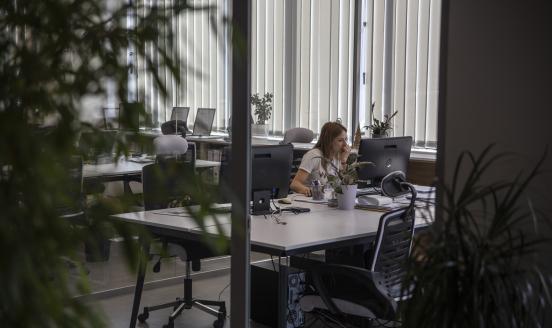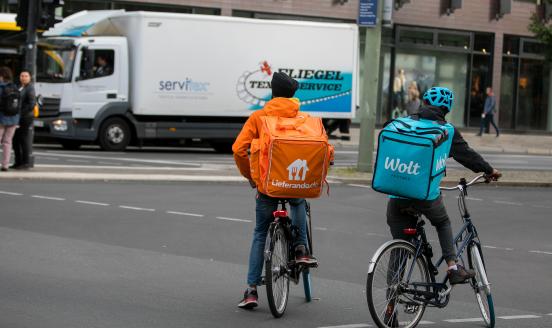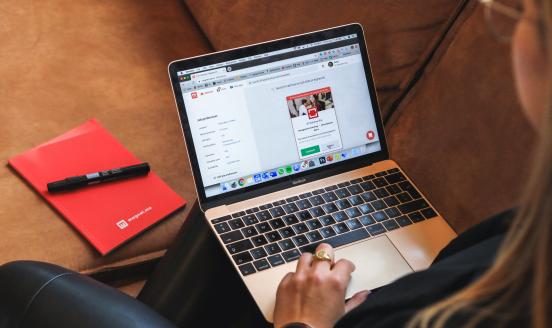

New ways of working: a round-up of project research
Remote work, platform work and self-employment are on the rise in Europe, necessitating new EU policies and new forms of labour protection.

Uptake and inequality of telework dashboard
A dashboard that monitors the uptake and inequality of telework in the EU across countries, years, occupations and socio-demographic groups.

The dominance of the platform economy
How are digital platforms overtaking the state and how can we regain control?

Why do employers want employees back in the office?
Leaders maintain a belief that employee collaboration is negatively impacted by remote work, but the evidence to support this assumption is mixed.

Employer perspectives on employee work location: collaboration, culture and control
Employee surveys across different countries indicate that employees prefer working remotely and do not want to return to the office full time.

The ‘anywhere’ jobs are not everywhere – they’re in cities
Given new remote working arrangements, online gigs can be completed in the lowest-cost locations; they’re mainly done by workers in large cities.

Cross-border telework in the EU: fab or fad?
Europe should investigate the possibility of ‘digital frontier worker’ status for cross-border remote workers.

Lessons from the rise in self-employment
What does the future look like for the self-employed and what does it mean for traditional workers?

Closing the gender gap for self-employed women in the European Union
Self-employed women are at a wealth disadvantage, according to ECB household finance data, and thus have more to gain from policies that spur saving.

Can working solo be good for entrepreneurs?
The self-employed are a diverse group, but they can help us better understand the drivers of well-being at work and help design better policies.

Policies to support the self-employed in the labour markets of the future
A review of changes in the way we work.

Better pensions for the European Union’s self-employed
What is the current state of pensions policy in Europe and how are independent workers treated compared with their traditionally employed counterparts

Market power and artificial intelligence work on online labour markets
We investigate how labour demand and supply elasticities relate to an exogenous change in platform policy.

Online labour: Can we all just move to Tahiti?
How is online labour different from remote work?

An inclusive European Union must boost gig workers’ rights
A European initiative strengthening rights for gig workers is welcome. A digitised economy should also be inclusive.

A hybrid future of work
Addressing employers’ and employees’ challenges.

For remote work to work, new ground rules are needed
The pandemic has shown workers and employers that another way to work is possible. The European Union should develop a framework to facilitate hybrid

Remote work, EU labour markets and wage inequality
More remote working in the wake of the pandemic could exacerbate wage inequality, with young workers, women and the low educated potentially losing ou

Blending physical and virtual: shaping the new workplace
Bruegel Annual Meetings, Day 2 - This panel will cover the changes the COVID-19 pandemic made to our workplaces, and what to expect in the near future

Designing a hybrid work organisation
Post-pandemic hybrid work models should be carefully planned, taking into account individual and organisational needs.

Blending the physical and virtual: a hybrid model for the future of work
The pandemic has shown that many workers can efficiently work remotely, with benefits for wellbeing and even productivity.

The Future of Work – a conversation with Commissioner Schmit
EU Commissioner for Jobs and Social Rights Nicolas Schmit joins Bruegel for a conversation around the future of work.

Self-employment, COVID-19, and the future of work for knowledge workers
The experiences of the self-employed could give a glimpse into the future of work for knowledge workers in a post-pandemic world.

Protecting workers in the platform economy
How can we protect platform workers while preserving the opportunities and benefits that are generated by the sharing economy?